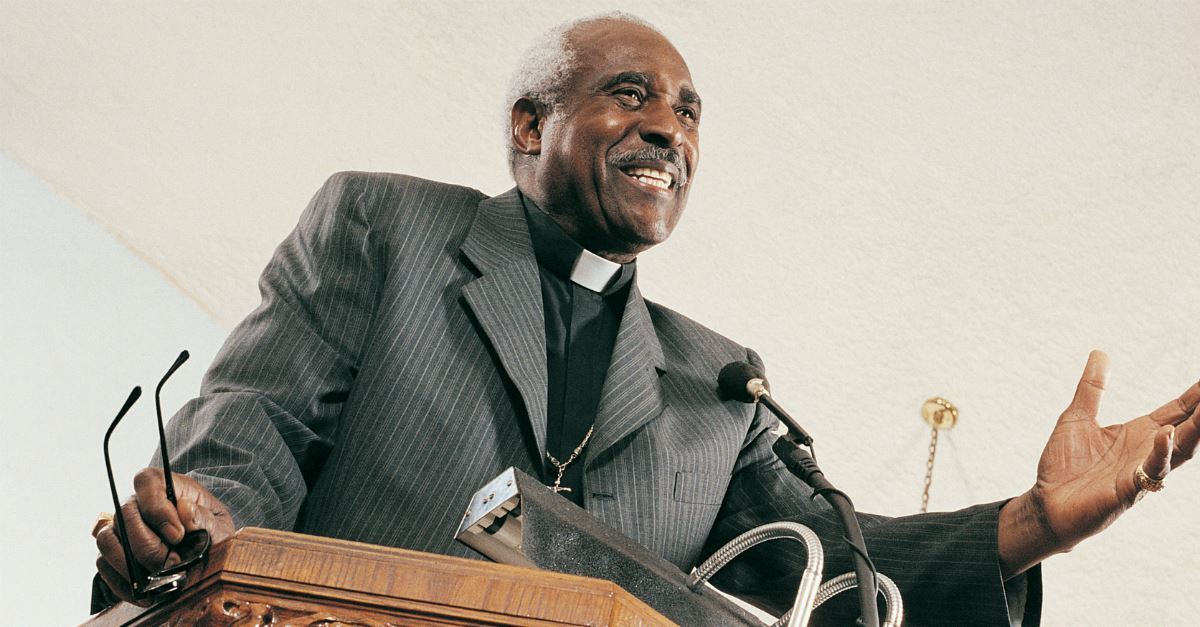
The relationship has felt strained for some time now.
Once it was close, built on trust and acceptance. But in recent years, we’ve allowed doubt to creep in. We’ve begun to look to others for guidance.
I’m not referring to a friendship or a marriage. No, I’m deeply concerned about the relationship between American Christians and the Bible. It’s on shaky ground and deteriorating fast.
We don’t know God’s Word like we used to.
And what we do know, we don’t necessarily buy into. Some of us don’t really believe the Bible is God’s revealed Word. Some have been influenced by the culture when it tells us that the Bible is an old, intolerant, irrelevant book.
And some of us simply want to do our own thing our own way.
Here are three symptoms of the American Christian’s breakup with the Bible, followed by four reasons we need to renew our relationship:
Photo Credit: ©GettyImages/Milkos
1. Biblical Illiteracy

The most obvious symptom of the American Christian’s deteriorating relationship with God’s Word is that we don’t know what it teaches – even some of the church’s most dearly held principles.
For example, according to a 2018 survey conducted by the Barna Group, 51% of American churchgoers did not recognize the Great Commission Jesus gave in Matthew 28:18-20
But that’s just one example. Here’s another: According to a 2017 survey by the Pew Research Center, 52% of American Protestants believe salvation requires faith and good works.
Sadly, this second example shows many of us don’t even know the most fundamental spiritual truths.
Photo Credit: ©GettyImages
2. Cultural Compromise

Over the last few decades, our culture has not only accepted but now also applauds certain behavior that the Bible clearly calls ungodly.
Rather than side with Scripture and take the inevitable persecution from the world, some in the church have sided with the culture, essentially calling God’s Word outdated and irrelevant.
We hear it from churches. We hear it from popular Bible teachers. We hear it from the pew. “Times have changed. The church needs to keep up to be relevant.”
But God does not change and neither does His Word (Malachi 3:6).
Photo Credit: ©Unsplash/Nainoa Shizuru
3. Human-Centered Teaching

The Bible is a book by God and about God. The Bible reveals God’s character, purposes, and His ways. Miraculously, through His Word, God also invites us to join Him in His work, to follow Him in His purposes for this world.
Yet somehow, we make the Bible about us. We want to be the center of things.
This me-centered attitude shows up in the list of best-selling “Christian” books, particularly those written for women. These popular books tell us that we “are enough,” that we are “okay just like we are,” that we “can do anything we set our minds to.”
Sounds great, but there’s just one problem with this teaching. It’s not biblical. This kind of teaching starts with a human, self-centered focus rather than a God-first focus.
The Bible tells us that no one is enough. That’s why Jesus came. We cannot carry out God’s purposes for us without His power. And we are not okay like we are, that’s why God works constantly to transform us into the image of Christ.
So, is our breakup with the Bible justified?
If the Bible is just another ancient book written by a few guys who died a really long time ago, then let’s put it in a display case in a museum. If the Bible doesn’t speak to today’s issues, then let’s leave it on the shelf to collect dust. But...what if the Bible isn’t just another ancient book?
Let’s consider four reasons why American Christians should re-evaluate and renew our relationship with the Bible:
Photo Credit: ©GettyImages/siphotography
1. The Bible is literally the words of God.

An atheist rejects the Bible because he does not believe in the existence of God. But a Christian accepts the existence of an all-powerful God who created the heavens and the earth. A Christian accepts the truth that the Creator God has made Himself known to us.
Creation is God’s general revelation to mankind and the Bible is God’s specific revelation to mankind.
The Bible teaches that it is the inspired Word of God.
Although physically recorded by the hands of men, every word was inspired by the Spirit of God (2 Peter 1:20-21). God breathed out His Word through humans, for humans. The Bible is God’s words to us, for us.
If we believe this to be true, then we cannot accept some parts of the Bible and reject others. Either all of it is God’s Word or none of it is.
Photo Credit: ©GettyImages/Vimvertigo
2. The Bible is relevant today and forever.

God’s Word is working in our lives and the lives of those around us. It is not static or bound by time. It crosses all cultural barriers, language differences, and geographical borders.
Those who give the Bible more than just a cursory read will recognize its power.
It speaks powerfully to the human condition, to our weaknesses, to our needs. God’s Word guides, comforts, and strengthens. God’s Word is “true” and “founded forever” (Psalm 119:151-152).
Photo Credit: ©GettyImages
3. The Bible is a living mirror for our hearts.

We are not the best judge of our own character. But there is One who is the perfect Judge.
The Holy Spirit holds up God’s Word like a mirror for our souls. He wields the Word like a sword to pierce our hearts and reveal our sinful thoughts, attitudes, and motivations (Hebrews 4:12-13).
This spiritual conviction through the words of Scripture testifies to the power and truth of the Bible.
Photo Credit: ©GettyImages/ijeab
4. The Bible is God’s tool for refinement.

Thankfully, God not only reveals our shortcomings through the Bible, He also uses His Word to grow and mature us. God lays it out beside our lives as a measuring rod to teach, correct, and equip us in preparation for His purposes (2 Timothy 3:16-17).
Every word is valuable. Every book is useful.
The Bible is not just another ancient book. God’s Word is timeless and relevant to all people throughout history. The eternal, unchanging God has revealed Himself, His purposes, and His ways to us in the Bible. We come to know Him, we come to Jesus Christ and find eternal life through the truths in His Word (2 Timothy 3:15). And yet we ignore it. Or we read it selectively or with a touch of skepticism preferring our own way over God’s.
So, what do we do now? How can we foster a stronger relationship with God’s Word?
First, let’s acknowledge the truth about the Bible. It is God’s inspired revelation of Himself. It is unchanging and true, relevant for today and every day.
Second, let’s commit to learn it and live by it – without compromise, without selectivity. And, finally:
Let’s hold the Bible out to others as God’s unchanging Word.
God is not surprised by the American Christian’s strained relationship with His Word. But to those of us who will listen, He calls us to something better. Just like Paul charged Timothy with the stewardship of God’s Word, God calls us today to be good stewards of His truth:
In the presence of God and of Christ Jesus, who will judge the living and the dead, and in view of his appearing and his kingdom, I give you this charge: Preach the word; be prepared in season and out of season; correct, rebuke and encourage—with great patience and careful instruction. For the time will come when people will not put up with sound doctrine. Instead, to suit their own desires, they will gather around them a great number of teachers to say what their itching ears want to hear. They will turn their ears away from the truth and turn aside to myths. But you, keep your head in all situations, endure hardship, do the work of an evangelist, discharge all the duties of your ministry.2 Timothy 4:1-5, NIV
Even if everyone else turns away from the Truth, we can stand firm on God’s eternal Word.
A former “cultural Christian,” Bible teacher and speaker Kathy Howard now lives an unshakeable faith for life and encourages women to stand firm on our rock-solid God. The author of eight books, Kathy has a Masters in Christian Education. She and her retired husband live outside the Dallas/Ft Worth area with their miscellaneous assortment of dogs. Find free discipleship resources on her website, www.kathyhoward.org and connect with Kathy on Facebook, Instagram, or Pinterest.
Photo Credit: ©GettyImages/DigitalVision